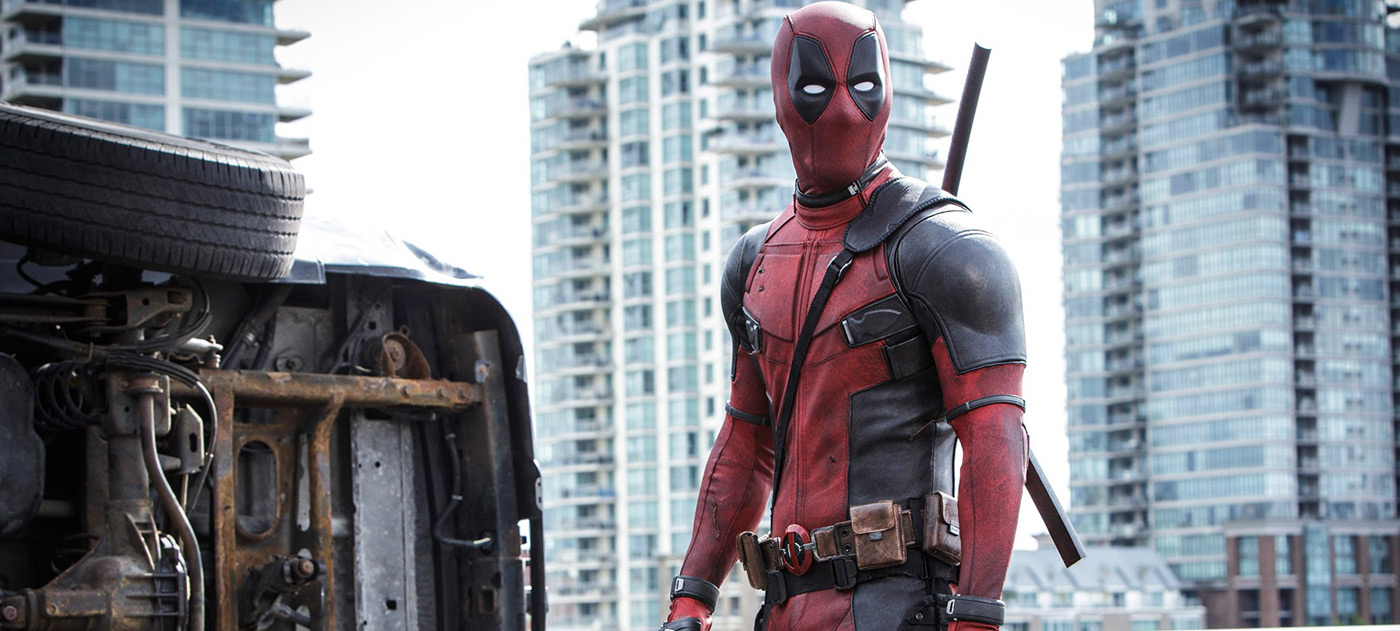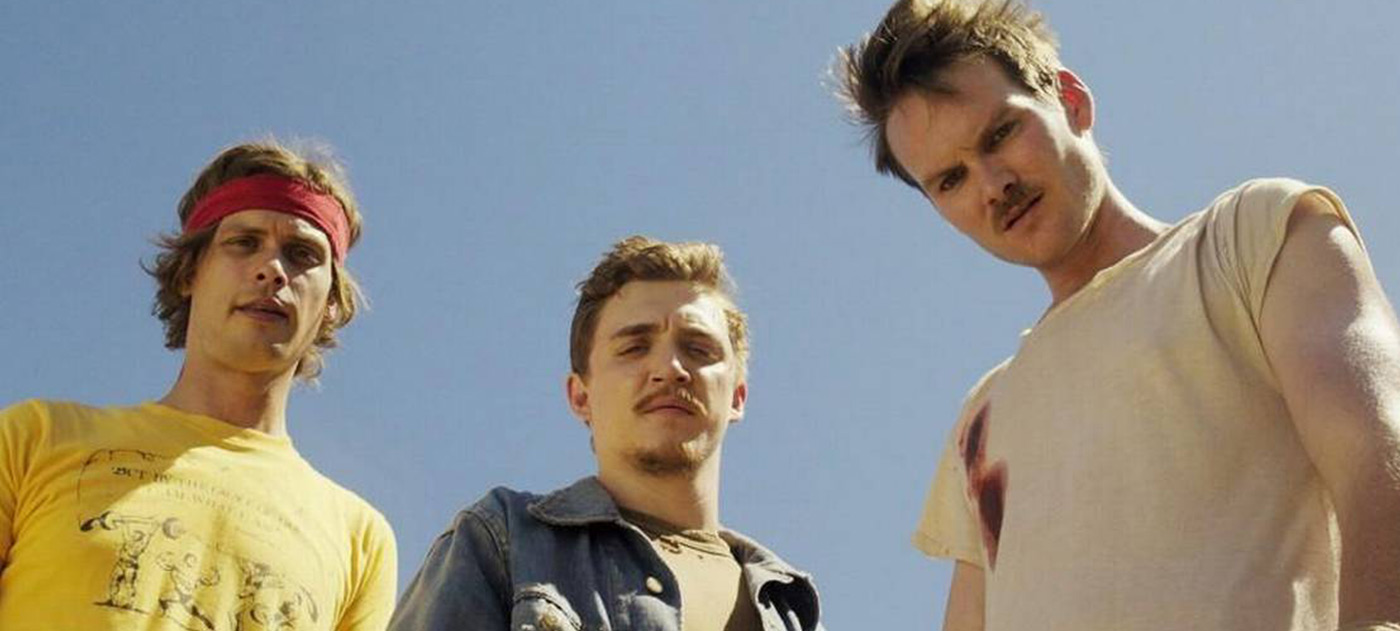Much has been said in recent months about electrifying co-star chemistry and magical screen pairings. These performances — by Cate Blanchett and Rooney Mara in Carol, by Brie Larson and Jacob Tremblay in Room, by Saoirse Ronan and Emory Cohen in Brooklyn, by Mya Taylor and Kitana Kiki Rodriguez in Tangerine — have inspired rapturous praise and rightly earned award recognition for being masterful duets by actors impossibly in tune with each other. Currently in theatres, the micro-indie drama Lamb, happily, gifts us with yet another mighty impressive duo to add to the collection; the film, alas, is receiving such a minuscule release that getting people to actually see these performances in the first place will be a feat unto itself. But these are unquestionably performances, and Lamb a film, that deserve as much acclaim as those listed above.
Lamb is a risky, ballsy film — by turns unsettling and beautiful — about the intense friendship that develops between a middle-aged man and a pre-teen girl after they happen to meet in a parking lot. David Lamb (Ross Partridge, Baghead), reeling from the death of his father and his recent divorce, meets 11-year-old Tommie (Oona Laurence, Southpaw), a middle-schooler from a broken family, one day when her “friends” attempt to humiliate her by having her approach David and bum a cigarette. This inciting event leads to an unorthodox friendship between the two, and David — longing to pull Tommie out of her unhappy life and show her the beauty that exists in the world — eventually takes her on a road trip to his family cottage in the mountains, where the two form a deeply emotional bond.
Partridge (also the film’s writer and director) navigates some precarious territory here. David spends the film troubled by the moral and ethical complexities of his relationship with Tommie — and he’s certainly very aware of its illegality as well. For much of the film’s running time, Partridge creates enormous tension by constantly raising doubt about how pure exactly David’s intentions are with Tommie, a young girl who willingly hops into his car and embarks on a trip crossing state lines without telling her parents — and David himself even seems to question this on occasion. When, in one harrowing scene early into their road trip, David spills a beverage on Tommie in a motel room then makes her take a bath to get clean, he is as shocked and frightened of himself as the viewer is as he wonders what exactly he is doing. Lamb, adapted from the novel by Bonnie Nadzam, is a film sure to horrify anyone who has children; Partridge has made one of the most provocative and thematically audacious films in years.
Lamb is a film about locating the beauty of the outside world when your inside world is crumbling, and director of photography Nathan M. Miller can take credit for much of the beauty that Partridge has put on screen. Miller’s lens captures the majesty of the Wyoming landscape — expansive but somehow intimate in its emptiness — and finds the wonder in stillness. Miller also performs magic with twilight, creating images that feel like memories, hazy and nostalgic, and far removed from the cold isolation of his cityscapes.
But the film’s success rests entirely on its pair of lead actors — and, man, are these a couple of remarkable performances. Partridge, a character actor who (despite a lead role in the aforementioned Duplass Brothers film) has never quite broken out, gives a complex and conflicted performance as a man who finds himself so emotionally drawn to this young girl, but who nevertheless frightens himself with the lines he’s willing to cross with her. It’s a confident, layered, lived-in movie-star performance — and Partridge is a hell of a lot more interesting than many lead actors in Hollywood productions tend to be. With any justice, this would be a career-making role for him. Laurence, meanwhile, has the biggest, most expressive eyes, and she is utterly believable in a very internalized, naturalistic performance as a girl who has long learned to accept that no one in her life actually cares about her, until she meets David. Laurence just exudes sadness and resignation — this is one of the most alert, insightful performances I’ve ever seen from a child actor. The nuance and fully dimensional humanity that she locates in Tommie is staggering. And when Partridge and Laurence share the screen, you just can’t look away. Their chemistry is electric; their dynamic constantly shifts and surprises. These are two performances that deserve to be talked about for years to come.
All that being said, what is the takeaway from this film? What do these characters learn from their experience together? Not that much, to be honest. David and Tommie find an emotional connection with each other that neither was expecting, and each emerges from the road trip somewhat healed. The film’s final scene is enormously affecting, the last shot haunting, but I can’t help feeling like it’s not quite enough — the film just isn’t quite as profound as it clearly thinks it is with all its talk of beauty and love. Still, Lamb is an exceptionally risky film, one whose premise alone would make every studio executive cringe in horror, and that is certainly something to be applauded. That Partridge has made such a controversial, dangerous film at all is in itself an achievement. That Lamb turns out to be one of the most moving and atypical (and inappropriate, and often-disturbing, and borderline-creepy) love stories cinema has to offer is the stuff of pure movie magic.
Lamb is now playing in (very) limited release and on VOD.










Fantastic Four
Fantastic Four